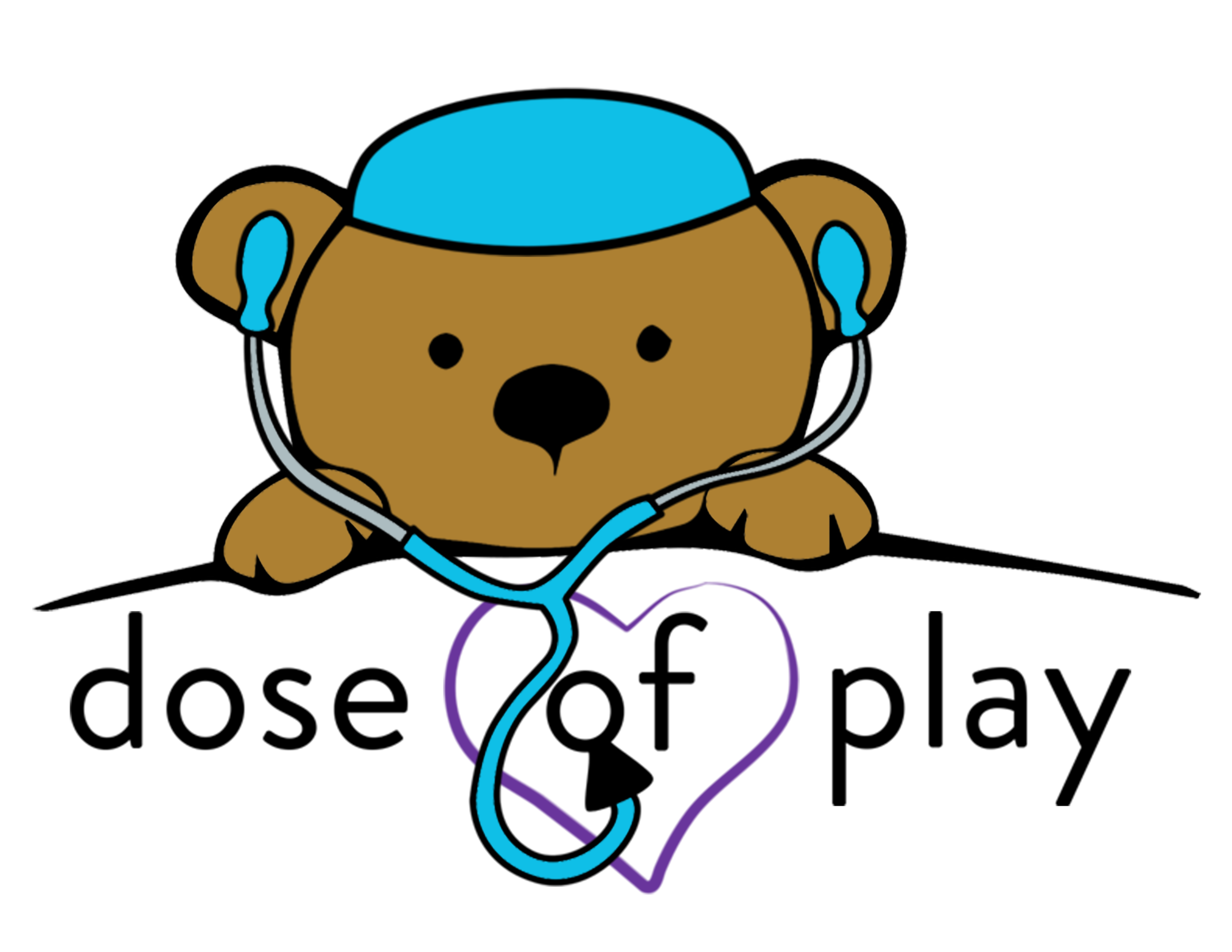How to Talk to Your Kids About Cancer
Guest Post by: Allie Jones, Certified Child Life Specialist, Hematology & Oncology Department
I remember when my sweet mom came to me and broke the news:
“Allie, Mrs. South has cancer.”
My eight-year-old brain wasn’t quite sure what “cancer” was, but based on my mom’s expression, I knew it probably wasn’t a good thing.
In the following weeks I remember seeing Mrs. South, my beloved teacher, begin to physically change right before my eyes - she lost of all of her hair and became very weak and pale. What was this “cancer” that seemed to make her so sick and who gave it to her? Could I catch cancer if I gave her a hug? Was everyone I loved going to get cancer, too?
Mrs. South unfortunately died. I remember crying with my mom and processing what happened for months on end. I even made a picture book of Mrs. South and my mom helped send it to her family.
Looking back, I can’t help but be so grateful to my mom for being open and honest with me about Mrs. South’s condition. My mom never hid the news from me. She didn’t worry when she saw my tears and try to make Mrs. South’s death seem “not so bad.” She encouraged my self-expression, she welcomed my questions and she remained a constant, steady, and trustworthy support for me.
And yet, it is all too common that parents say they will not tell their child that someone they love (whether that be a classmate, family member or friend) has cancer because:
“I don’t want them to be sad.” (Hint: sadness is a normal and healthy emotion to express!)
“I don’t want to scare them.” (Hint: “Cancer” is just a word. If you provide gentle reassurance you can help your child feel more at peace.)
“They are just a kid. They don’t understand.” (Hint: Kids are sponges. They understand. And even if they are too young to understand full explanations, they can pick up on the emotions surrounding a cancer diagnosis.)
“My dad died from cancer, so I don’t want to tell them about this other cancer.” (Hint: Every person has their own unique story. Every patient fighting cancer has their own unique outcome. Kids will learn that as you guide them.)
Whether your own child has cancer, your child’s classmate or neighbor friend is newly diagnosed, or your very own “Mrs. South” is nearing the end of life, I want to share a few resources with you of how you can talk to children about cancer and how you can be a supportive presence when a loved one has cancer. Parents and caregivers have an important responsibility to model for children how they can process this news in a way that is supportive, truthful and even kid-friendly.
How to Talk to Your Kids About Cancer
1. Use developmentally appropriate wording. Use the actual name of the disease.
2. Consider using visuals to help them learn.
· Make the parts of blood out of candy
· Create cancer tumors out of play-doh
· Read children’s books about cancer
3. Encourage their expression of feelings & invite questions. Give yourself permission to express your own feelings as well! It teaches kids it's alright to feel things, too.
4. Reassure them that cancer is not anyone's fault and that they can't catch cancer like a cold.
5. Connect the child with other supportive relationships (e.g. school counselors, trusted family members, even other children who are experiencing similar circumstances).
6. Give choices when appropriate for how much the child wants to be involved. As an example, don’t force them to make “get well” cards.
7. Provide reassurance that it is okay to engage in activities the child enjoys. Kids process through difficult circumstances through play.
What now?
So, you have now explained “cancer” to your child. What now? Modeling. Once again parents and caregivers have the important responsibility to model for children how they can be a friend to the loved one with cancer in a way that respects the child’s choices, models appropriate grieving, and is the true support that the loved one needs.
Care for a Loved One with Cancer
Listen. Just being a caring presence is enough. Let the focus be on them, not on you.
Coach your kids on the ways they can be supportive and sensitive.
Instead of saying, “Anything I can do to help?”, offer specific ways you can help support (e.g. watch siblings, run an errand, organize a meal train, schedule a visit with their friend, drop off distraction or relaxation activities without expecting a visit with them).
Then, respect the loved ones needs/choices. Everyone handles their fight with cancer differently. Don’t force your own opinions. Continue to ask, “Whose needs are being met?
It’s okay to express your emotions with the loved one who has cancer. Just remember to keep the focus on their needs and feelings, too.
Allie is a Certified Child Life Specialist and the founder of the Child Life Cooperative website, podcast and YouTube channel-a resource for child life professionals and students. You can watch how Allie teaches about leukemia here.


